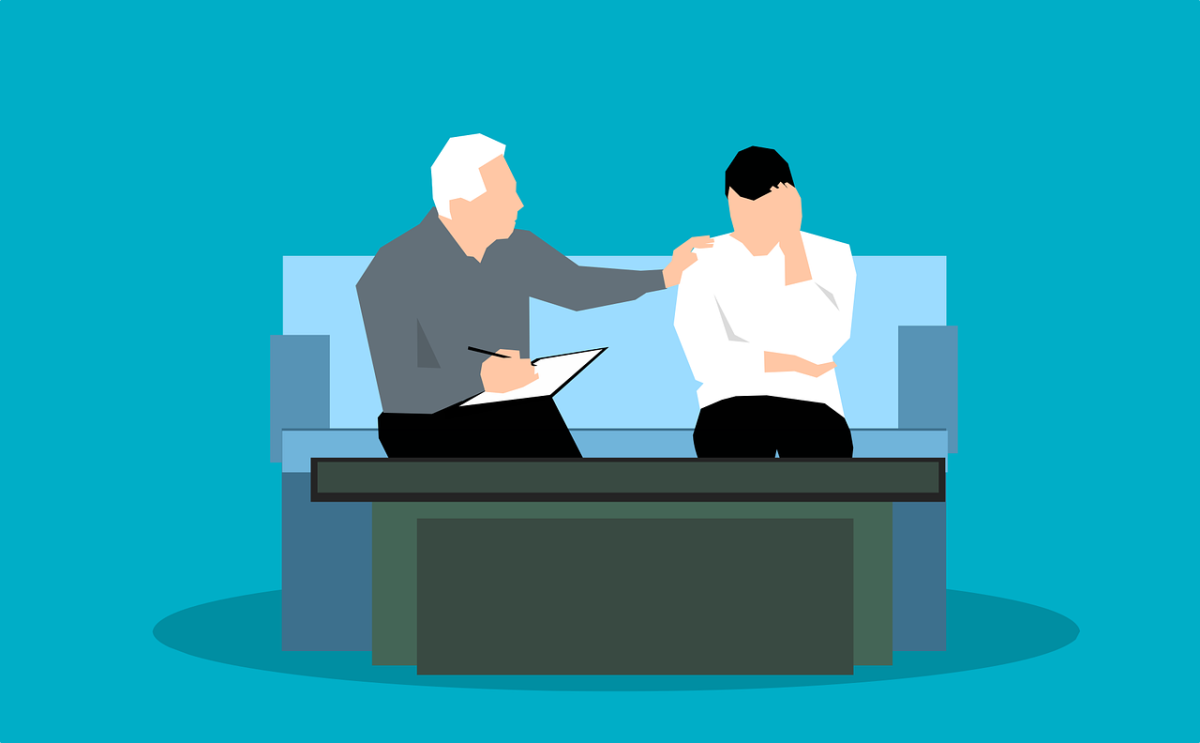I have been thinking about mental health a lot recently. Not only have I been dealing with my own mental battles, but self-care and mental health permeate conversations everywhere these days, as they should. A recent survey by the Association for University and College Counseling Center Directors showed nearly 90% of surveyed members believe the pandemic has influenced their students’ mental health negatively.
Unsurprisingly, college students suffer from mental health issues. Students were banned from campuses and monumental high school moments in March 2020. Then, there were long stretches of isolation during the following school year, whether students attended classes remotely from home or lived on or near campus under tight public health restrictions. Now, we’re back to ‘normal,’ but this fall hardly feels like normal. Experts say that the reopening of schools and workplaces, along with the relaxation of restrictions, can unleash complicated feelings. These feeling can include stress, depression and anxiety. This makes it particularly important for college students and young adults to take care of their physical, emotional and mental well-being.
According to a 2020 study by the Jed Foundation, most students struggling with their mental health experienced increased anxiety followed by depression, trouble concentrations, and inability to cope with stress. On top of these numbers, in most cases, symptoms of mental health problems emerge between 18 to 24years-olds.
According to psychiatryadvisor, seasonal affective disorder, another common mental health condition, is more prevalent among younger populations. Vaile Wright, Senior Director of Health Care Innovation and Practice Directorate at the American Psychological Association, says what makes S.A.D. unique is its timing. “It has a distinct seasonal onset, typically in winter, and a spontaneous remission of symptoms,” Wright said in an article from the New York Times. S.A.D. patients experience classic depression symptoms: sadness, irritability, trouble concentrating, lack of interest in activities and increased sleep and appetite.
So, if you’re dealing with newfound mental health problems (in general, or beginning this fall), it’s a prevalent thing despite the pandemic. While S.A.D. may not be commonly discussed on campuses like Clemson University, it is a mental health concern that affects many people across the United States; including college students, and we should talk about it more.
Brooke Stride is a junior nursing major here at Clemson. The Chicago native is involved with the Alpha Delta Pi sorority, Rally Cats, Clemson University Guide Association and Student-Athlete Advisory Committee. Because of the challenges and stresses college brings, Stride has fought her own mental health battle, but is quite optimistic about it all.
“Though my journey has had its ups and downs, college has been a very good challenge for my mental health,” Stride remarked. “There have been some dark times, though college has pushed me to prioritize my mental health in a way I had not done prior. Without the stressors I’ve experienced, I wouldn’t have the happy coping mechanisms and headspace I currently have!”
To help improve her mental health, Stride has taken social media breaks, established a better workout routine, and implemented some sense of stability through student involvement. She has been going to therapy for close to a year, confiding in her therapist, who helps her understand her anxiety on a deep level. Brooke highly recommends therapy to everyone, even if nothing drastic seems to be going on, because it’s a wonderful opportunity to be introspective and keep tabs on your well-being.
For those just beginning their mental health battles; “Know your feelings are valid,” Stride advises. “The earlier you seek help, the better you’ll be off in the long run. Sometimes the hardest part is starting this tough conversation with yourself. That’s how it was for me. Don’t work on yourself for anyone but you!”
Mental illness cares not about busy schedules, majors, age nor season. The only option we can choose is whether to seek help or ignore the symptoms. The battle with mental health is worth the fight. Although life is so tricky sometimes, there is always a better side to your situation. Perseverance is key. Whether it be a cup of coffee, time with friends, time by yourself, a comfort show, seek things that bring you joy. Clemson provides resources to help improve your mental health, including Counseling and Psychological Services (CAPS) and Aspire to Be Well initiatives. Consult with your doctor about how mental health services can help you.
As Stride said, the earlier you seek help, the better off you’ll be in the long run. Having tough conversations with yourself will eventually lead to a better understanding of yourself and a journey to healing. Remember, there is no shame in asking for help. If you are struggling, I encourage you to reach out for it.
If you would like to learn more about mental health in college students, check out these resources!
College students’ mental health is a growing concern, survey finds
How to Recognize and Address Seasonal Depression
33 Alarming College Student Mental Health Statistics
Clemson Counseling And Psychological Services (CAPS)
Clemson Mental Health | Anxiety
Clemson Mental Health | Depression
This article was edited on 11/22/2021 for grammatical errors.
Unsurprisingly, college students suffer from mental health issues. Students were banned from campuses and monumental high school moments in March 2020. Then, there were long stretches of isolation during the following school year, whether students attended classes remotely from home or lived on or near campus under tight public health restrictions. Now, we’re back to ‘normal,’ but this fall hardly feels like normal. Experts say that the reopening of schools and workplaces, along with the relaxation of restrictions, can unleash complicated feelings. These feeling can include stress, depression and anxiety. This makes it particularly important for college students and young adults to take care of their physical, emotional and mental well-being.
According to a 2020 study by the Jed Foundation, most students struggling with their mental health experienced increased anxiety followed by depression, trouble concentrations, and inability to cope with stress. On top of these numbers, in most cases, symptoms of mental health problems emerge between 18 to 24years-olds.
According to psychiatryadvisor, seasonal affective disorder, another common mental health condition, is more prevalent among younger populations. Vaile Wright, Senior Director of Health Care Innovation and Practice Directorate at the American Psychological Association, says what makes S.A.D. unique is its timing. “It has a distinct seasonal onset, typically in winter, and a spontaneous remission of symptoms,” Wright said in an article from the New York Times. S.A.D. patients experience classic depression symptoms: sadness, irritability, trouble concentrating, lack of interest in activities and increased sleep and appetite.
So, if you’re dealing with newfound mental health problems (in general, or beginning this fall), it’s a prevalent thing despite the pandemic. While S.A.D. may not be commonly discussed on campuses like Clemson University, it is a mental health concern that affects many people across the United States; including college students, and we should talk about it more.
Brooke Stride is a junior nursing major here at Clemson. The Chicago native is involved with the Alpha Delta Pi sorority, Rally Cats, Clemson University Guide Association and Student-Athlete Advisory Committee. Because of the challenges and stresses college brings, Stride has fought her own mental health battle, but is quite optimistic about it all.
“Though my journey has had its ups and downs, college has been a very good challenge for my mental health,” Stride remarked. “There have been some dark times, though college has pushed me to prioritize my mental health in a way I had not done prior. Without the stressors I’ve experienced, I wouldn’t have the happy coping mechanisms and headspace I currently have!”
To help improve her mental health, Stride has taken social media breaks, established a better workout routine, and implemented some sense of stability through student involvement. She has been going to therapy for close to a year, confiding in her therapist, who helps her understand her anxiety on a deep level. Brooke highly recommends therapy to everyone, even if nothing drastic seems to be going on, because it’s a wonderful opportunity to be introspective and keep tabs on your well-being.
For those just beginning their mental health battles; “Know your feelings are valid,” Stride advises. “The earlier you seek help, the better you’ll be off in the long run. Sometimes the hardest part is starting this tough conversation with yourself. That’s how it was for me. Don’t work on yourself for anyone but you!”
Mental illness cares not about busy schedules, majors, age nor season. The only option we can choose is whether to seek help or ignore the symptoms. The battle with mental health is worth the fight. Although life is so tricky sometimes, there is always a better side to your situation. Perseverance is key. Whether it be a cup of coffee, time with friends, time by yourself, a comfort show, seek things that bring you joy. Clemson provides resources to help improve your mental health, including Counseling and Psychological Services (CAPS) and Aspire to Be Well initiatives. Consult with your doctor about how mental health services can help you.
As Stride said, the earlier you seek help, the better off you’ll be in the long run. Having tough conversations with yourself will eventually lead to a better understanding of yourself and a journey to healing. Remember, there is no shame in asking for help. If you are struggling, I encourage you to reach out for it.
If you would like to learn more about mental health in college students, check out these resources!
College students’ mental health is a growing concern, survey finds
How to Recognize and Address Seasonal Depression
33 Alarming College Student Mental Health Statistics
Clemson Counseling And Psychological Services (CAPS)
Clemson Mental Health | Anxiety
Clemson Mental Health | Depression
This article was edited on 11/22/2021 for grammatical errors.









